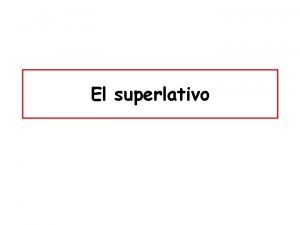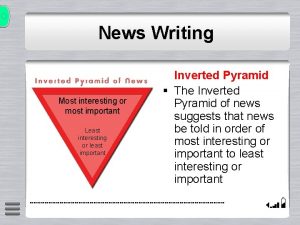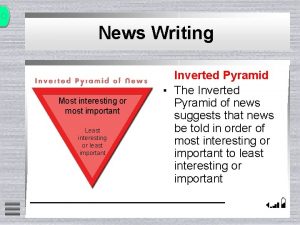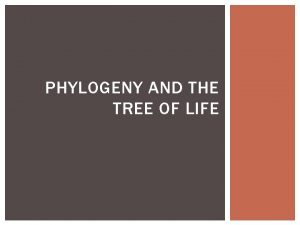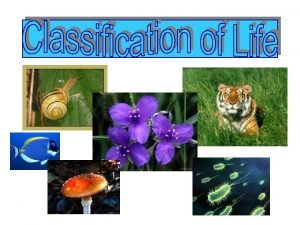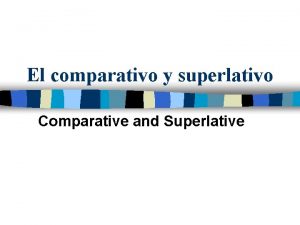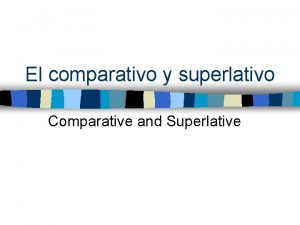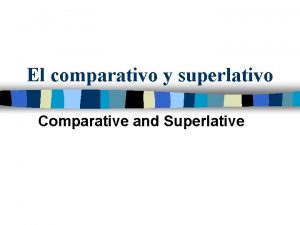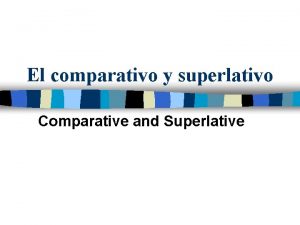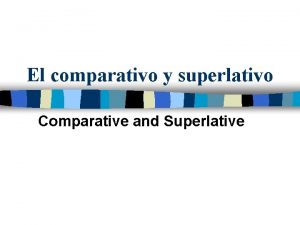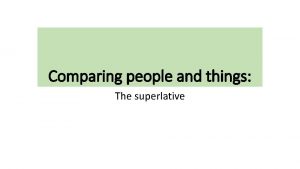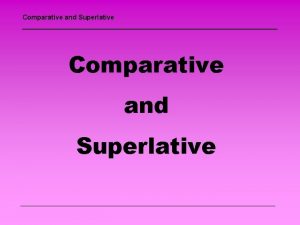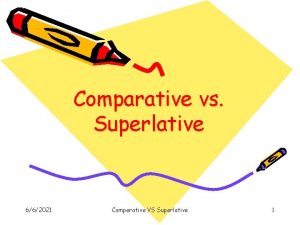The Superlative El superlativo The most the least












- Slides: 12

The Superlative (El superlativo) (The most. . . , the least. . . )

El, la, los, las más/menos de: the superlative De is also used instead of que with superlative comparisons Entre los medios de transportación. . . la bicicleta es la más pequeña de todos. the smallest of El barco y el avión son los más caros de todos. of the most expensive

Again, in English, we use a special ending, est, for short adjectives and adverbs used as superlatives: biggest tallest finest prettiest fastest slowest However, we use the most. . . of (or in) and the least. . . of (or in) for longer adjectives and adverbs: the most delicate of the most complicated of the least expensive (of all, in the world) the most carefully of (John did the assignment the most carefully of all the students. )

Once again, in Spanish, we have no such short cut, but notice how the structure of Spanish parallels that of English. In both languages, we must add a definite article, and than becomes of, just as que becomes de. Ana is the smallest of all the students. (the smallest in the school) Ana es la más pequeña de todos los estudiantes. (la más pequeña de la escuela) Berta Susana Ana Here, Spanish uses only de, never en !!!

The irregular comparative forms also apply to the superlatives • más bueno (bien) • más malo (mal) • más viejo mejor peor mayor • más joven menor Let’s look at our irregular comparative examples once again, this time adding a superlative.

bueno → mejor • Un autobús es un buen medio de transportación. Un coche es muy bueno. más bueno que • Un coche es mejor que un autobús. • Un limosín con chófer es el mejor de todos (de los tres).

malo → peor • Un huracán es malo. Un tornado es muy malo. más malo que • Un tornado es peor que un huracán. • Un terremoto es el peor de todos (de los tres).

viejo → mayor • Pablo es viejo. Pedro es muy viejo. más viejo que • Pedro es mayor que Pablo. • Rodolfo es el mayor de todos (de los tres).

joven → menor • Beatriz es muy joven. Anita no es tan joven como parece. más joven que • Beatriz es menor que Anita. • Inés es la menor de todas (de las tres).

El más bueno and el más malo Just as with comparatives, más bueno and más malo are also used in the superlative instead of mejor and peor when referring to a person’s character, sense of morality, or behavior. • Raúl es malo; no obedece a sus padres. • Su hermano, Tomás, es muy obediente. Tomás es más bueno que Raúl. • Su hermanito, Paco, es un ángel. Paco es el más bueno de todos.

El más bueno and el más malo Just as with comparatives, más bueno and más malo are also used in the superlative instead of mejor and peor when referring to a person’s character, sense of morality, or behavior. • Mario es ladrón (thief); es un hombre malo. • Julio es asesino (murderer); es un hombre muy malo. Julio es más malo que Mario. • Tomás es asesino en serie (serial killer); es un hombre muy malo. Tomás es el más malo de todos.

FIN
 Es es
Es es Which layer is the least dense
Which layer is the least dense Shakespeare 29 sonnet
Shakespeare 29 sonnet Example of a news story
Example of a news story Earth's layers most dense to least dense
Earth's layers most dense to least dense Least important to most important
Least important to most important Most-to-least prompting example
Most-to-least prompting example Earth's layers most dense to least dense
Earth's layers most dense to least dense What is the least competitive market structure
What is the least competitive market structure From most important to least important in writing
From most important to least important in writing Most general to most specific classification
Most general to most specific classification In the name of god most gracious prayer
In the name of god most gracious prayer Organisms taxonomy
Organisms taxonomy
